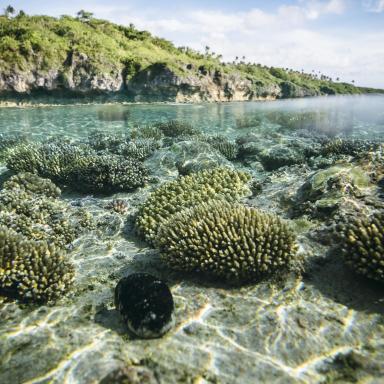Countless communities around the world have long-standing cultural and societal ties to the ocean. In some places, this dependence is so strong that entire economies are built upon ocean-related industries, like seafood and tourism. While some great progress has been made to improve sustainability of ocean uses, overfishing and unsustainable development continue to threaten ocean habitats and biodiversity. Added stressors, like climate change and pollution, and new demands on ocean use, like ocean mining and renewable energy, can exacerbate these problems. To tackle these pressing issues, emLab’s Ocean & Fisheries program uses rigorous and innovative methods to enhance the ecological and economic performance of fisheries and other marine sectors.
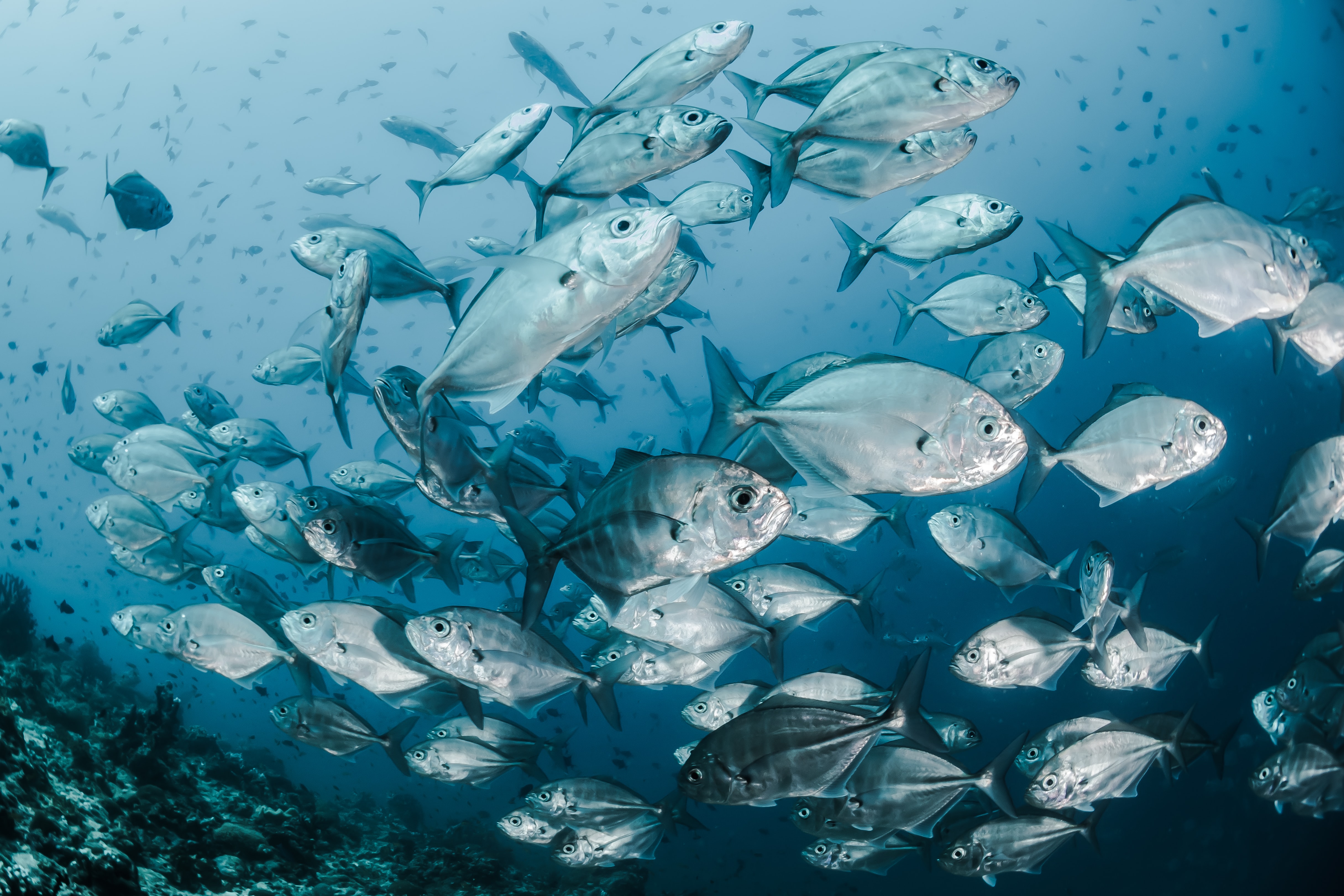
Ocean & Fisheries
Key Themes
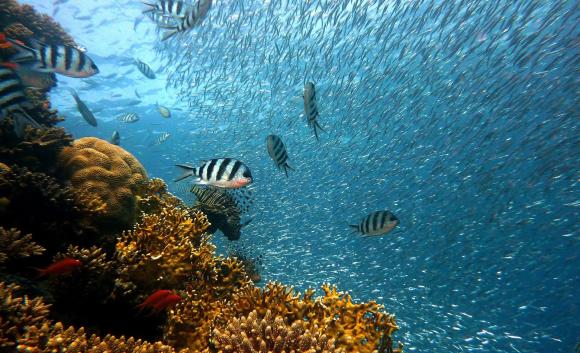
Spatial conservation strategies
Marine protected areas are conservation tools that, if designed and managed effectively, can preserve biodiversity, enhance food provision, mitigate climate change impacts, and improve resilience by addressing or mitigating current and future threats. We develop new conservation planning approaches and evaluate different spatial conservation strategies that explicitly consider, and often reconcile, seemingly conflicting objectives from diverse ocean users.
Related Projects
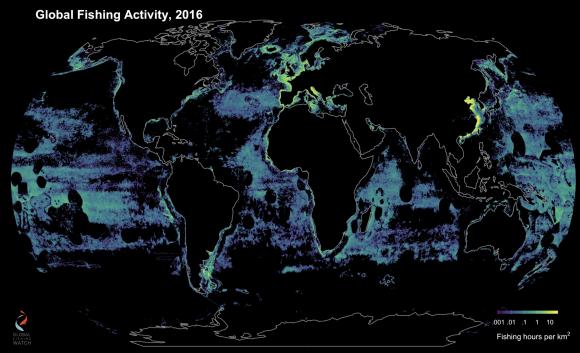
Satellite data for policy insights
New technologies allow us to capture and access high-resolution data better and faster than ever before. These revolutionary developments help illuminate real-time activity in the ocean, even in the most remote areas. We develop new governance, policy, and management interventions that are designed specifically to make use of these data, thus improving management, conservation, and livelihood outcomes around the world.
Related Projects
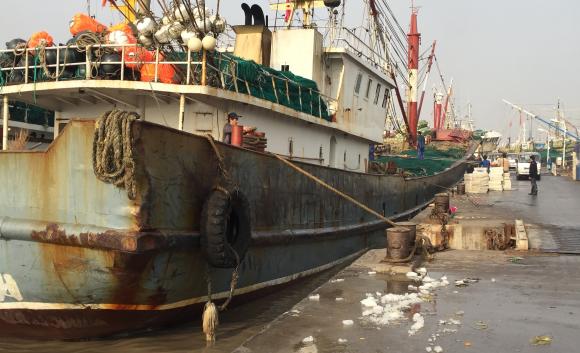
Reforming fisheries institutions
Unsustainable exploitation of common pool resources is largely a consequence of governance systems that reward over-extraction and undervalue conservation. Drawing on insights from economics, we develop and analyze market-based interventions to reverse these incentives to align conservation with economic prosperity.
Related Projects
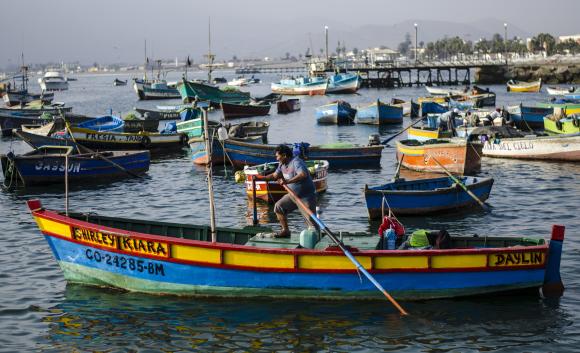
Innovative ocean financing
Top-down management and philanthropy are often essential to bolster conservation efforts, but we believe that alternative conservation finance options, designed to work in low-governance and incomplete property rights settings, can accelerate long-term solutions. We design new financing options, and work with private sector partners to tailor existing tools, to provide a toolkit for innovative and effective ocean conservation finance.
Related Projects

Climate change and the blue economy
Climate change has already had a significant impact on ocean productivity, species’ distributions, and ocean chemistry. These and other climate change related impacts on ocean ecosystems are only expected to intensify. We develop and analyze management strategies that are adaptive to the effects of climate change and support resilient ecosystems and sustainable blue economies.
Related Projects
Satellites can reveal global extent of forced labor in the world's fishing fleet
Groundbreaking study sheds light on slavery at sea. Analysis reveals vessels known to have crew that are subject to forced labor behave in systematically different ways to the rest of the global fishing fleet. The discovery was used to build a model to identify and predict vessels at high risk of engaging in these abuses, and found that up to 26% of the 16,000 vessels analyzed were at high risk of using forced labor.
Publications
Related to
Near-global spawning strategies of large pelagic fish
Buenafe et al. 2025, Nature Communications
Aquaculture isn’t always the answer: rethinking blue transitions through justice and community experience
Castillo et al. 2025, Global Environmental Change
Little-to-no industrial fishing occurs in fully and highly protected marine areas
Raynor et al. 2025, Science
The biogeochemistry of natural climate solutions based on fish, fisheries, and marine mammals: A review of current evidence, research needs, and critical assessment of readiness
Collins et al. 2025, Global Biogeochemical Cycles
emLab Blog: Our 2 Cents
Related to
In the News
Related to


